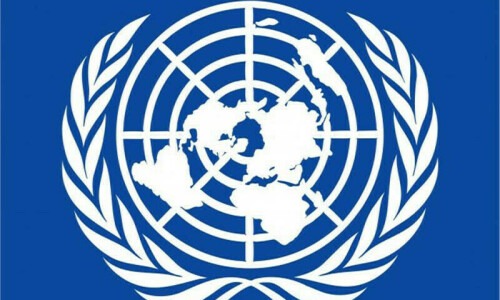LAHORE: The UN Human Rights Committee, also known as the Committee on Civil and Political Rights (CCPR), has raised concerns about internet and social media app blockages, surveillance, and various other rights violations in Pakistan. This discussion occurred during the second day of the review of human rights conditions in Pakistan in a meeting held in Geneva on Friday.
Freedom of Association and NGO Operations
The committee chair questioned the restrictions on freedom of association, highlighting the barriers faced by NGOs at both federal and provincial levels. Concerns were raised about the inspection of NGO finances and plans, which interfere with their operations. The committee demanded measures to ensure a conducive environment for NGOs to work independently and called for laws to eliminate these hindrances.
Student Unions and Discrimination
The prohibition of student unions for over 40 years was a significant issue discussed. The committee highlighted that university students must sign declarations rejecting political activity for admission. Additionally, Pashtun and Baloch students face arbitrary disciplinary actions due to their political activities. The committee urged the removal of the ban on student unions and the creation of a supportive environment for them.
Child Rights and Anti-Rape Laws
The committee expressed concerns about the low birth registration rate in Pakistan, with only 42% of children under five having registered births. The recent alleged rape of a college girl in Punjab was also highlighted, questioning the implementation of anti-rape laws and political interference in such cases. The committee also discussed the lack of juvenile justice operations and rehabilitation programs.
Forced Conversions and Religious Intolerance
The issue of forced conversions, particularly of Hindu and Christian girls, was raised. The committee disputed the reported number of cases, stating the actual figures were much higher. It criticized the handling of these cases, where girls are often sent back to their abductors or to inadequate shelters. The rising intolerance towards religious minorities, including Shia Muslims, Christians, Ahmadis, Hindus, and Sikhs, was also condemned.
Blasphemy Laws and Freedom of Expression
The committee noted that the criminal law amendment act of 2023 increased the persecution of minorities by heightening penalties for derogatory remarks against holy persons. The misuse of blasphemy laws was a significant concern, especially in light of threats against Ahmadi religious sites. The committee stressed the need for amending these laws to prevent their abuse.
Media Freedom and Censorship
Concerns were raised about media freedom, citing instances where PEMRA exceeded its mandate, leading to censorship and suspension of news channel licenses. The committee pointed out the lack of implementation of the Protection of Journalists and Media Professionals Act, resulting in threats and violence against journalists, leading to self-censorship.
Internet Outages and Online Surveillance
The frequent internet outages and social media app blockages, particularly during the May 2023 protests, were criticized for restricting freedom of expression and information access. The Prevention of Electronic Crimes Act (PECA) was also discussed for its role in enabling unlawful surveillance and online defamation charges.
Bonded Labour
The committee highlighted the issue of over three million Pakistanis trapped in forced labor, particularly in the agriculture, brick kiln, and domestic work sectors. The post-2022 floods situation exacerbated this issue, especially among children. The committee called for measures to combat forced labor and the exploitation of children.
The Pakistani delegation, led by Malik Muhammad Ahmad Khan, responded to some questions during the review under the International Covenant on Civil and Political Rights (ICCPR). Pakistan ratified the ICCPR in 2010, with the first review in 2017. The second review took place on Friday.



